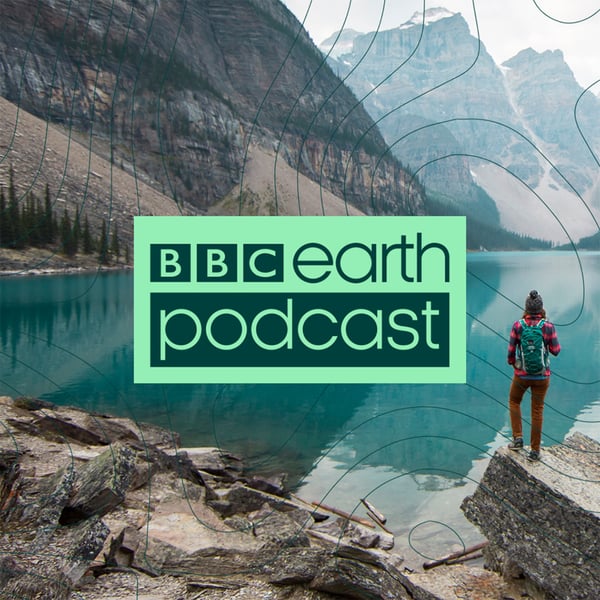The man-made forest that led to extinction
BBC Earth Podcast
Jenkins Laura
4.6 • 611 Ratings
🗓️ 9 February 2021
⏱️ 28 minutes
🧾️ Download transcript
Summary
There are few places on our planet that have not in some way been shaped by humans. We’re looking at how, for better or worse, we’ve made a mark on our world, and whether it’s possible to escape the influence of us.
To begin, we travel to Aldabra - an idyllic coral atoll in the Indian ocean. It’s one of the most remote places in the world, home to giant tortoises and very little human intrusion. Yet even in this largely uninhabited spot, traces of humanity can be found.
Next we’ll be exploring an island far away from anywhere else, right in the middle of the Atlantic. Ascension Island is an arid landscape. But it’s also home to a lush man-made tropical forest. What lessons can we learn from one of humanity’s largest ever landscaping projects?
To finish, we’ll hear from journalist Judith D. Schwartz. She explains how human influence - even that thousands of years in the making - has and can be reversed.
Thank you for listening to another series of the BBC Earth podcast.
As ever, we love hearing from you on social media, so do share with us your favourite episode so far or a story that amazed, surprised or moved you…
To find out more about David Attenborough’s stunning natural world series, A Perfect Planet, visit the BBC Earth website: bbcearth.com
Website: www.bbcearth.com
Facebook: www.facebook.com/bbcearth/
Instagram: www.instagram.com/bbcearth/
Twitter: www.twitter.com/bbcearth
Hosted on Acast. See acast.com/privacy for more information.
Transcript
Click on a timestamp to play from that location
| 0:00.0 | This is a podcast from BBC Studios. |
| 0:03.6 | BBC Studios. A commercial is one of the most remote islands in the world. |
| 0:32.4 | The island itself is uninhabited, save for a very small research base on one corner of the island. |
| 0:38.8 | And the sea around it is very well protected. |
| 0:41.7 | I don't think you can go within 50 miles of the island. |
| 0:45.4 | And when you go there, you really do feel like you're seeing things that very, very few people have seen. |
| 0:55.8 | Welcome to the BBC Earths podcast, the podcast that's trying to get as far away from other people as possible. |
| 1:03.3 | Our entire planet has been shaped now by humans. |
| 1:07.2 | And there are just very few places you can go to where you can see nature without our influence. |
| 1:14.0 | And that kind of remoteness, that kind of sort of isolation from other humans is, I find it quite thrilling. |
| 1:24.4 | In this episode, we're taking a look at how far the influence of human beings has spread across the face of our planet, for better or worse, and wondering if it's even possible to get away from it entirely. |
| 1:36.0 | And a coral atoll in the middle of the Indian Ocean is a good place to start. |
| 1:41.6 | Not many people know this, but coral atolls are actually extinct volcanoes. |
| 1:46.0 | So when a volcano comes out of the sea, it creates a cone, you know, an island, |
| 1:52.0 | and over time that island slowly starts to sink into the sea floor. |
| 1:58.0 | And as it does so, coral reef grows up around the edges. And eventually, the island |
| 2:04.9 | itself disappears completely beneath the waves, leaving a lagoon in the middle, surrounded by a coral |
| 2:10.5 | reef. And that's what Aldabra is. It's an extinct volcano. For many of us, the quintessential idea |
| 2:17.3 | of a place free of humans is one from storybooks, |
| 2:20.4 | the desert island. |
| 2:22.0 | A spit of land miles from anywhere, where there's nothing but the sound of the breaking waves |
| 2:26.4 | and the calling of birds. |
... |
Please login to see the full transcript.
Disclaimer: The podcast and artwork embedded on this page are from Jenkins Laura, and are the property of its owner and not affiliated with or endorsed by Tapesearch.
Generated transcripts are the property of Jenkins Laura and are distributed freely under the Fair Use doctrine. Transcripts generated by Tapesearch are not guaranteed to be accurate.
Copyright © Tapesearch 2025.

